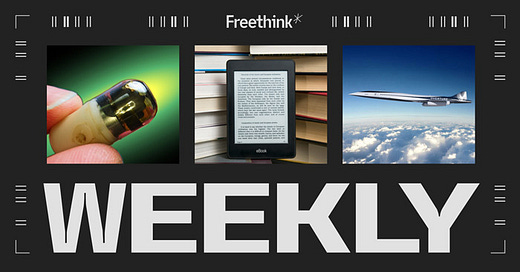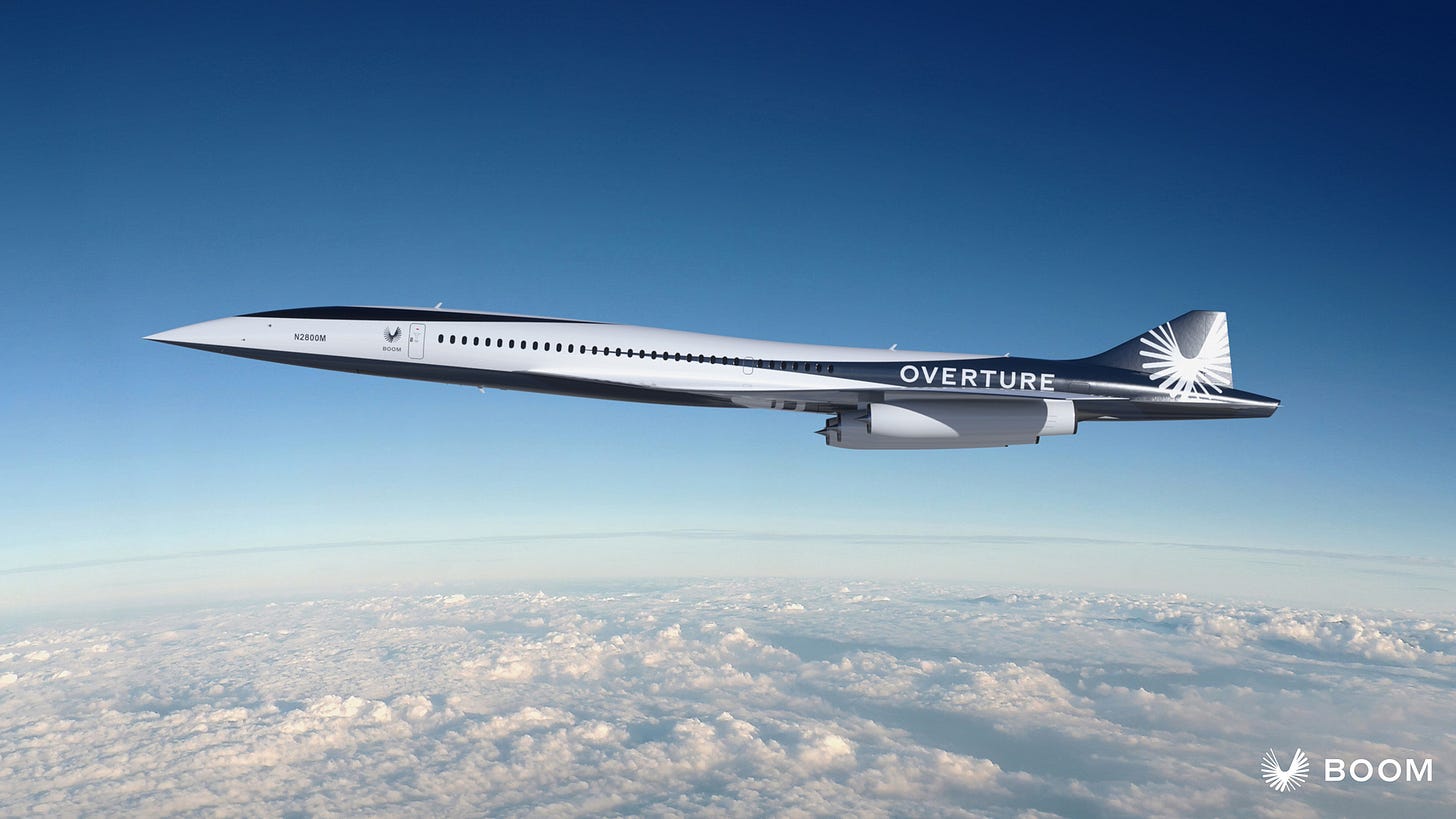🌎 Watch me eat a robot (for science)
Nick Tucker tries out this new cancer-seeking technology.
Hey Freethinkers,
What’s it like to play Mario Kart inside your stomach? In our latest Hard Reset episode, Nick Tucker found out firsthand by swallowing Pillbot — a 13mm robot equipped with a camera and tiny jets that help it maneuver throughout your body. Today, this remote-controlled submarine is in its early stages but still capable of giving you an endoscopic look at your GI tract. Eventually, Pillbot maker Endiatx hopes the technology will go beyond scouting missions to deliver customized medicines directly on target.
Also on deck this week: How a startup is resurrecting supersonic flights that will fly “twice as fast as a Boeing or Airbus”; a Nobel Prize winner’s solution for solving water scarcity in the American West; and the Internet Archive’s ill-fated gamble on the limits of “fair use.”
Onwards,
Stephen
HARD RESET
I ate a 13mm robot. It found something unexpected.
Pillbot’s first prototype was affectionately called “Pool Bot.” The football-sized robot was a great proof of concept, but only a whale could swallow it comfortably. The next five years would be an engineering journey to shrink Pool Bot by orders of magnitude. Today, Pillbot is tiny enough for a human to swallow safely and is built with around $35 in parts. This feat alone may be enough to dramatically alter medical procedures that rely on putting tubes where tubes should not go. Now, Endiatx wants to shrink Pillbot a step further to make its potential medical advances cost-effective for everyone in the world.
FUTURE EXPLORED
How Boom is resurrecting supersonic flight
Airplanes are the fastest and safest form of transportation humans have ever devised. Think the 5-hour flight plus connection time between New York and Los Angeles is a nightmare? Try enduring the two-day drive between the two cities with your kids in the backseat asking if you’re there yet (every half hour without fail). As time-saving as commercial flights are, they were almost even faster.
In the 1970s, British Airways and Air France’s Concorde became the first plane to fly passengers at supersonic speeds; however, the project was quickly abandoned due to maintenance costs, loud noise, high ticket prices, and excessive fuel consumption. Today, supersonic air travel may be due for a resurgence. The startup Boom is designing a new supersonic plane, the Overture, and it is using the lessons of the past to fix the Concorde’s missteps.
FREETHINK FEATURES
The West needs more water. This Nobel winner may have the answer.
The Western United States has been a thirsty place lately. Over the last several years, high temperatures have caused severe droughts through evaporative demand — a reverse of historical trends when most droughts occurred during years of low precipitation. As temperatures continue to rise due to climate change, scientists worry these water shortages will last longer and cover wider areas.
Paul Milgrom, a Stanford University professor who won the 2020 Nobel Prize in Economics, believes he has a solution for the water-guzzling status quo. It doesn’t involve land management, preserving snowpack, or building new reservoirs. Instead, he wants to establish new water rights through a voluntary, one-time auction. Will it work? Ross Pomeroy appraises the idea.
THE CHANGING WORLD ORDER
How the Internet Archive’s “Free Digital Library” fell to the “fair use” test
The Internet Archive’s “Free Digital Library” and “Open Library Project” seemed in line with the original spirit of the internet. The nonprofit would digitize copies of books and lend them out to readers one at a time, just like any brick-and-mortar library. The goal was to further the Internet Archive’s mission of providing “universal access to all knowledge.” What’s not to love?
A lot, according to the U.S. Court of Appeals for the 2nd Circuit. In Hachette Book Group v. Internet Archive, the Court ruled that the nonprofit was in violation of copyright law, distributing books without permission. The Internet Archive argued that its projects fell under “fair use,” but the Court wasn’t having it. Why did the Court reach this decision, and why do critics believe it may prove bad news for both readers and authors? Damon Root explains.
WORTH SHARING

Mechanized minds: AI’s hidden impact on human thought
Decades before ChatGPT, the Indian philosopher Jiddu Krishnamurti was asking questions we’re only starting to wrestle with today. “If the machine can take over everything man can do, and do it still better than us, then what is a human being, what are you?” asked Krishnamurti in the 1980s. He believed much of human thought is mechanical in nature — pattern-based stuff that machines could someday replicate. But he also thought there was more to our minds that computers would never capture — and that we should cultivate that higher intelligence if we don’t want it to shrivel up in the age of superpowered AI.
Stephen Johnson is the managing editor at Big Think and a writer at Freethink.











